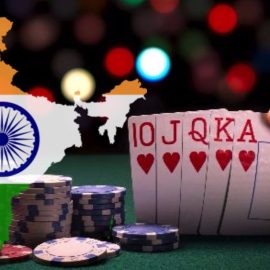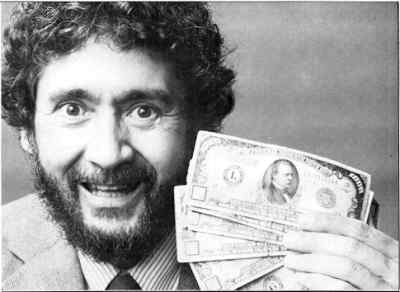In India, sports, lotteries, and betting have been bedfellows for decades (a gambling ménage à trois that got a few rich and the many in jail). In that exact amount of time, the casino industry and the country's state regulators have remained in stalemate. India had been steadfast in its decision to deny casinos its blessing.
However, the newest figures show that gamblers and operators have raised the online casino market to $60 billion per year. Prompted by the big money, India could be next in the long line of nations to finally embrace and legalise casino gambling.
But what would that move entail for a country that spans half the size of Europe and hosts the second biggest population in the world?
Will a new legal status for gambling work in favor of the welfare of the state and its billions who still live in dire poverty? Or will it further upset the social integration of street children, many of which already show signs of gambler's addiction?
Read here: Substance Abuse Replaced By Teenage Gambling Addiction
To solve those predicaments...
Indian Legislators Are Tossing the Coin
But will the mammoth size of India and the ancestral clash between its many ethnic and religious families allow for the coin to fall on the side of casino operators?
During a gaming conference in London this February, countries that have successfully legalised gambling and tested the consequences have been giving feedback to India's Law Commission chairman, Justice BS Chauhan.
Gambling and sports betting are already a reality in India, but the dice are thrown behind the government's back. Time and again, regulators have proven incapable of stopping these backstreet activities.
Naturally, albeit with a late-bloomer's apprehension, the Indian government is seriously considering the once-upon-a-time unpalatable alternative- to tax and regulate gambling.
That would give the good guys a chance to crack down on illicit gambling and sports betting venues whilst law-abiding casinos that have shown the spirit of fair play will stake their claim for a slice of a $60 billion tasty pie.
It wouldn't be the first time India has managed a gold rush. The wealth of its soil is the stuff of legends and has fired up the imagination of countless treasure hunters.
You know what they say. Fortune favors the bold.
India's Casino-friendly Encaves
Ask any traveler out there. India has always been a country of contradictions and contrasts. It's a classic case of opposites attract. A growing belt of slums strangle the economic powerhouses of Delhi and Mumbai. India is a country of slumdog millionaires.
330 million gods and goddesses fight each other and coexist in one single unit- the Brahman. Snake charming is illegal, and yet snake charmers roam the temples and fill the street corners- with the approval of the authorities. Gambling in India struggles under heavy legal restrictions despite the industry's huge potential as a source of revenue for the state.
If the Asian continent were Cinderella- there is a close resemblance, given the current rule of dictators and fundamentalists- then India would be its glass slipper.
This is one nation blessed with the world's riches. India has been sitting on gold mines for as long as the Ramayana can recall. Diamonds were the maharajas' best friends for centuries before the British monarchy adorned its glitzy crowns with the bloody war booty. Now, the tide has turned again in the favor of the Indus valley civilization.
But the nation, as a whole, has gained a fiersome reputation as an anti-gambling enforcer. However, India spreads as large as half of Europe, and it's by no means homogenous in its policies regarding gambling.
Enjoying a pinch of autonomy, the Indian states of Goa, Sikkim and Daman have already tested the legal ground. Casinos are officially welcome here.
And the casino-friendly policies seem to have been successfully implemented. However, India will not follow suit in a nationwide acceptance of gambling if the government won't face some of its most torturous fears.
We put on our anthropologist coats and did some guesswork. That's how we came out with a couple of reasons why India would delay legalising its already existent, but constitutionally latent casino industry.
India's Top Gambling Fears
1. The dissolution of the caste system?
India's badge of shame lies in the socio-economic stratification that is the caste system. A foundation for educational and job reservations, the pervasiveness of castes is highly responsible for economic inequality.
Introducing land-based casinos will mean curbing the separation between members of different castes, meddling rich and poor, the elite and the beggars together.
India might be apprehensive about such dire changes, especially when they can draw upon another Indian precedent from across the oceans.
When the Indian Gaming Regulatory Act passed in the 1980s, it ushered in a period of retribution for dispossessed Native Americans in the U.S.
Three decades later, in 2015, Native American tribes were operating nearly 357,000 gaming machines and 7,700 table games in 494 gambling venues across the continent.
2. The Bollywood Version of Casino Royale?
Bollywood movies conjure up over the top action sequences, action men whipping up an assortment of superpowers to rescue damsels in distress, and brightly colored choreographies. Imagine Salman Khan as James Bond in Casino Royale.
Or, why not, this guy. He can certainly shuffle a pack of cards.
3. The Snake Charmers Putting a Spell on the Roulette?
In the West, it's the chaos theorists who calculated the motion of the wheel and ball and beat the roulette. In the East, it will be the snake charmers who tame the wheel of fortune.
These individuals carry a living by putting their lives on the line- or under a cobra's venimous fangs- every day. Plus, they spin magic from that pungi.
Could the Indian government fear it will lose one of its most exotic touristic attraction to the lure of the brick-and-mortar table games?
Legal Gambling Will Be A Future Reality in India
Online betting knows no geographical or legal boundaries in India. Smartphones transcend caste systems or government laws. And Indians have plenty of those. The millennials in urban areas depend less on the indecision of the Indian Law Commission or the fierce opposition from religious or otherwise conservative groups.
Young Indians live in a perpetual brave new world. Where chance- not law- governs supreme.



















